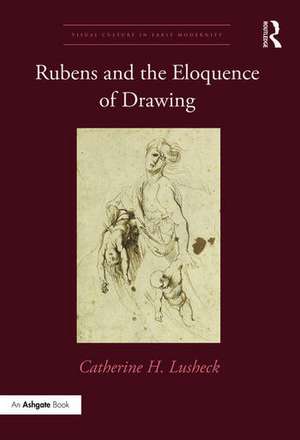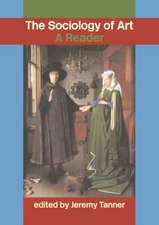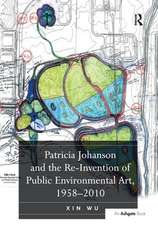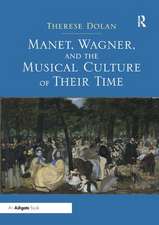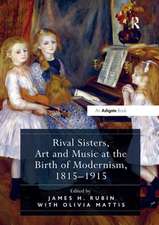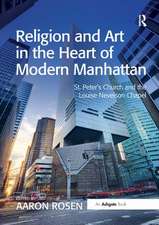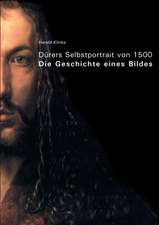Rubens and the Eloquence of Drawing: Visual Culture in Early Modernity
Autor Catherine H. Lushecken Limba Engleză Hardback – 7 aug 2017
Two chapter-long studies of individual drawings serve to demonstrate the relevance of these interdisciplinary rhetorical concerns to Rubens’s early practice of drawing. Focusing on Rubens’s Medea Fleeing with Her Dead Children (Los Angeles, Getty Museum), and Kneeling Man (Rotterdam, Museum Boijmans Van Beuningen), these close-looking case studies demonstrate Rubens’s commitments to creating new models of eloquent drawing and to highlighting his own status as an inimitable maker. Demonstrating the force and quality of Rubens’s intellect in the medium then most associated with the closest ideas of the artist, such designs were arguably created as more robust pedagogical and preparatory models that could help strengthen art itself for a new and often troubled age.
| Toate formatele și edițiile | Preț | Express |
|---|---|---|
| Paperback (1) | 364.17 lei 6-8 săpt. | |
| Taylor & Francis – 18 apr 2019 | 364.17 lei 6-8 săpt. | |
| Hardback (1) | 1017.63 lei 6-8 săpt. | |
| Taylor & Francis – 7 aug 2017 | 1017.63 lei 6-8 săpt. |
Din seria Visual Culture in Early Modernity
- 22%
 Preț: 324.16 lei
Preț: 324.16 lei - 18%
 Preț: 1061.84 lei
Preț: 1061.84 lei -
 Preț: 311.37 lei
Preț: 311.37 lei - 9%
 Preț: 1022.27 lei
Preț: 1022.27 lei -
 Preț: 312.12 lei
Preț: 312.12 lei -
 Preț: 356.70 lei
Preț: 356.70 lei -
 Preț: 336.27 lei
Preț: 336.27 lei -
 Preț: 432.98 lei
Preț: 432.98 lei - 17%
 Preț: 343.55 lei
Preț: 343.55 lei - 25%
 Preț: 324.16 lei
Preț: 324.16 lei - 30%
 Preț: 769.92 lei
Preț: 769.92 lei - 13%
 Preț: 338.33 lei
Preț: 338.33 lei - 22%
 Preț: 259.98 lei
Preț: 259.98 lei - 25%
 Preț: 326.11 lei
Preț: 326.11 lei -
 Preț: 471.08 lei
Preț: 471.08 lei - 28%
 Preț: 826.84 lei
Preț: 826.84 lei - 28%
 Preț: 819.90 lei
Preț: 819.90 lei - 28%
 Preț: 878.42 lei
Preț: 878.42 lei - 28%
 Preț: 829.69 lei
Preț: 829.69 lei - 25%
 Preț: 325.43 lei
Preț: 325.43 lei - 30%
 Preț: 853.03 lei
Preț: 853.03 lei - 17%
 Preț: 339.96 lei
Preț: 339.96 lei - 30%
 Preț: 830.92 lei
Preț: 830.92 lei - 16%
 Preț: 338.33 lei
Preț: 338.33 lei - 30%
 Preț: 826.02 lei
Preț: 826.02 lei - 30%
 Preț: 772.60 lei
Preț: 772.60 lei - 30%
 Preț: 768.62 lei
Preț: 768.62 lei - 17%
 Preț: 338.33 lei
Preț: 338.33 lei - 30%
 Preț: 771.07 lei
Preț: 771.07 lei - 26%
 Preț: 324.84 lei
Preț: 324.84 lei - 30%
 Preț: 772.76 lei
Preț: 772.76 lei - 16%
 Preț: 347.33 lei
Preț: 347.33 lei - 31%
 Preț: 765.03 lei
Preț: 765.03 lei -
 Preț: 489.26 lei
Preț: 489.26 lei - 28%
 Preț: 822.91 lei
Preț: 822.91 lei - 18%
 Preț: 300.09 lei
Preț: 300.09 lei - 26%
 Preț: 820.73 lei
Preț: 820.73 lei - 28%
 Preț: 829.69 lei
Preț: 829.69 lei - 28%
 Preț: 826.84 lei
Preț: 826.84 lei - 30%
 Preț: 776.03 lei
Preț: 776.03 lei
Preț: 1017.63 lei
Preț vechi: 1241.02 lei
-18% Nou
Puncte Express: 1526
Preț estimativ în valută:
194.75€ • 202.57$ • 160.78£
194.75€ • 202.57$ • 160.78£
Carte tipărită la comandă
Livrare economică 15-29 aprilie
Preluare comenzi: 021 569.72.76
Specificații
ISBN-13: 9781472477125
ISBN-10: 147247712X
Pagini: 344
Ilustrații: 40 Halftones, color; 55 Halftones, black and white; 40 Illustrations, color; 55 Illustrations, black and white
Dimensiuni: 174 x 246 x 23 mm
Greutate: 0.95 kg
Ediția:1
Editura: Taylor & Francis
Colecția Routledge
Seria Visual Culture in Early Modernity
Locul publicării:Oxford, United Kingdom
ISBN-10: 147247712X
Pagini: 344
Ilustrații: 40 Halftones, color; 55 Halftones, black and white; 40 Illustrations, color; 55 Illustrations, black and white
Dimensiuni: 174 x 246 x 23 mm
Greutate: 0.95 kg
Ediția:1
Editura: Taylor & Francis
Colecția Routledge
Seria Visual Culture in Early Modernity
Locul publicării:Oxford, United Kingdom
Cuprins
List of Illustrations
Acknowledgements
Prologue: Rubens’s Early Drawings and the Problem of Eclecticism
PART I: DRAWING IN CONTEXT
Chapter 1 – Setting the Stage: Privileging Eloquent Disegno in Rubens's Early Drawings
Chapter 2 – Style and Eloquence in Rubens’s Milieu
PART II: CASE STUDIES IN GRAPHIC ELOQUENCEChapter 3 – The Getty Medea and Rubens’s Making of a Modern Senecan Grande Âme
Chapter 4 – Figuring Eloquence: The Kneeling Man and Rubens’s Construction of the Robust Male Nude
Bibliography
Index of Works
Index
Acknowledgements
Prologue: Rubens’s Early Drawings and the Problem of Eclecticism
PART I: DRAWING IN CONTEXT
Chapter 1 – Setting the Stage: Privileging Eloquent Disegno in Rubens's Early Drawings
Chapter 2 – Style and Eloquence in Rubens’s Milieu
PART II: CASE STUDIES IN GRAPHIC ELOQUENCEChapter 3 – The Getty Medea and Rubens’s Making of a Modern Senecan Grande Âme
Chapter 4 – Figuring Eloquence: The Kneeling Man and Rubens’s Construction of the Robust Male Nude
Bibliography
Index of Works
Index
Notă biografică
Catherine Lusheck (PhD, UC Berkeley), is Associate Professor of Art History at the University of San Francisco. Her research interests include Rubens drawings, and early modern humanism, style, and visual rhetoric. Her publications include "Content in Form: Rubens's Kneeling Man and the Graphic Reformation of the Ideal, Robust Male Nude," Jaarboek Koninklijk Museum voor Schone Kunsten Antwerpen (2000), and a forthcoming essay, "Leonardo’s Brambles and their Afterlife in Rubens’s Studies of Nature."
Recenzii
"Lusheck’s study is well informed and will provide a welcome introduction for new students of Rubens’s philosophical background."
- Historians of Netherlandish Art Reviews
"Rubens and the Eloquence of Drawing is a significant addition to the literature on Rubens and an effective model of 'a more expansive approach to drawing and its functions' (27) in early modern Europe. Lusheck’s lucid prose and the generous quantity of illustrations enable the reader to fully engage with the drawings as repositories of Rubens’s learned and complex thought."
- Renaissance Quarterly
- Historians of Netherlandish Art Reviews
"Rubens and the Eloquence of Drawing is a significant addition to the literature on Rubens and an effective model of 'a more expansive approach to drawing and its functions' (27) in early modern Europe. Lusheck’s lucid prose and the generous quantity of illustrations enable the reader to fully engage with the drawings as repositories of Rubens’s learned and complex thought."
- Renaissance Quarterly
Descriere
This book demonstrates the roles that Senecan eclecticism and a classicizing approach to emulation played in Rubens’s joining of form to matter in his formative drawings practice, and arguably in his early ambitions to strengthen art for a new and troubled age.
